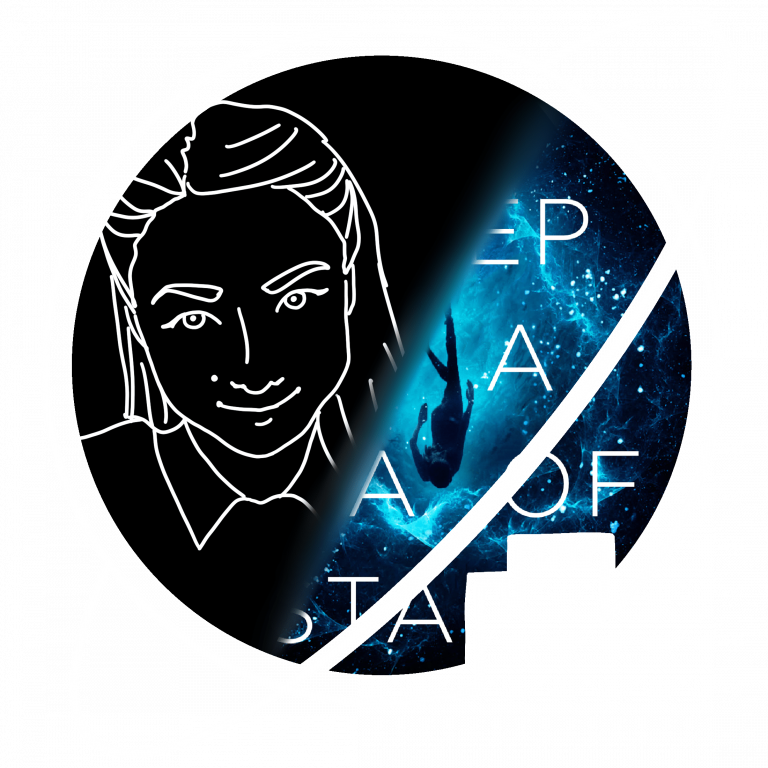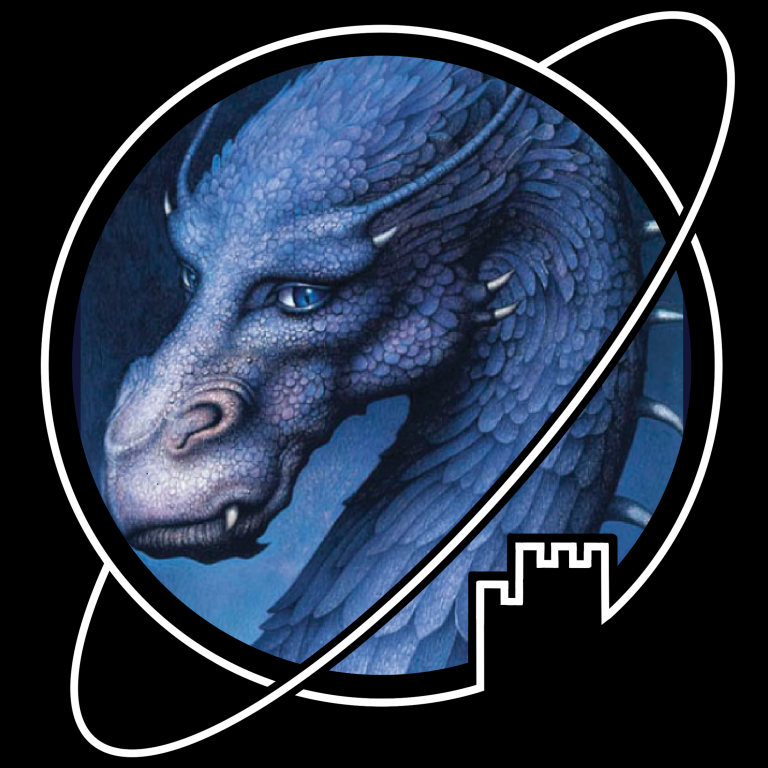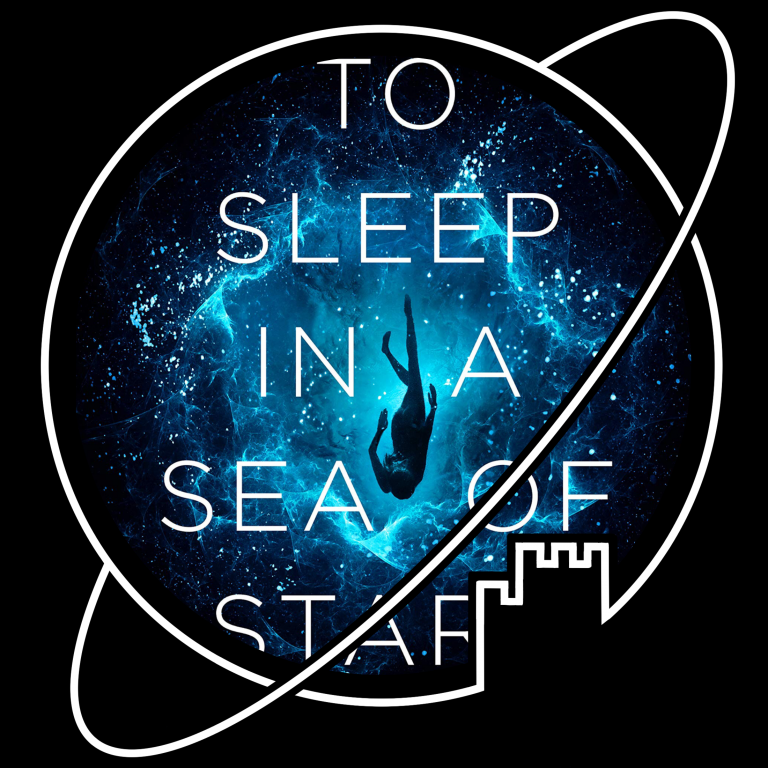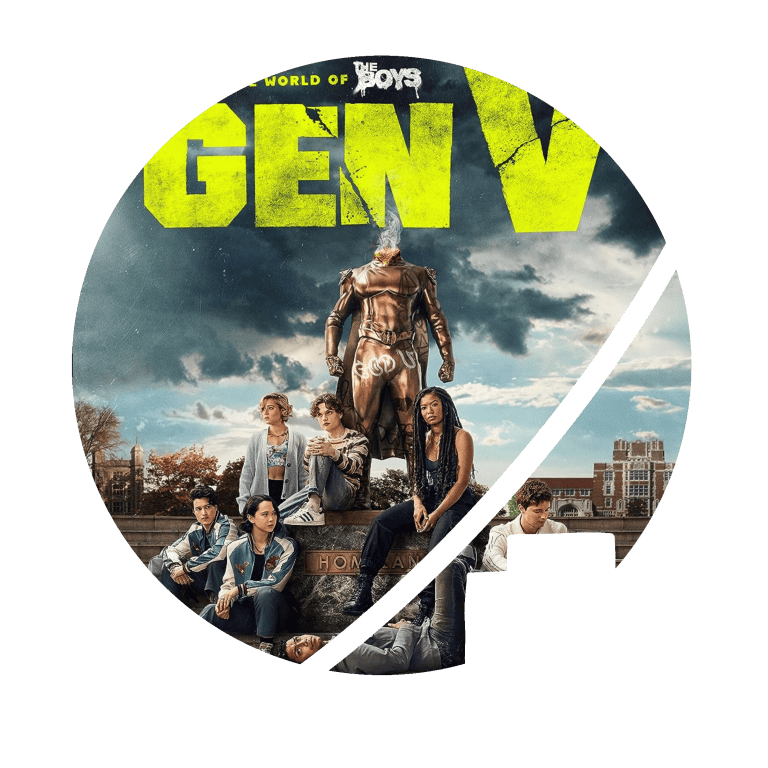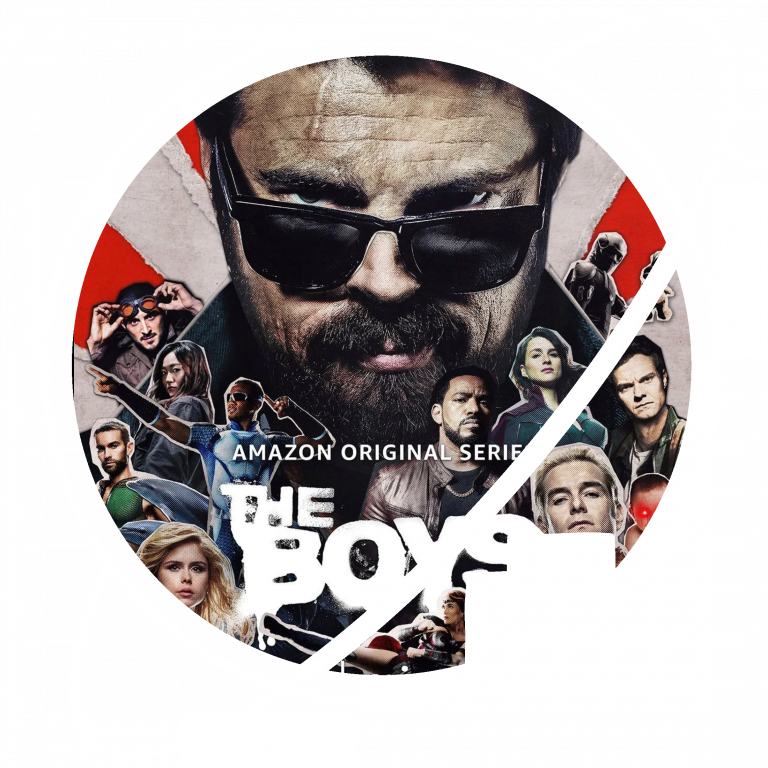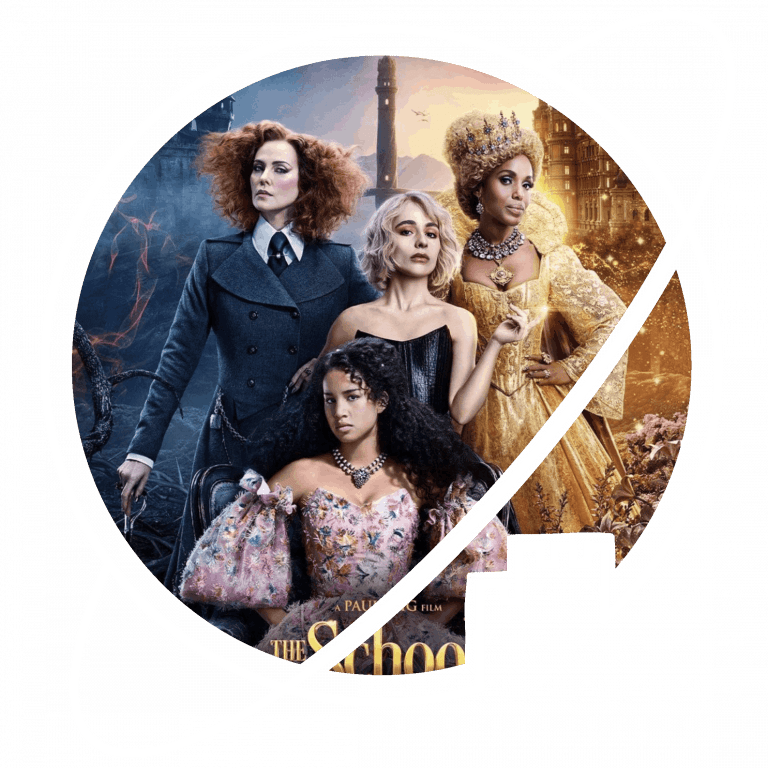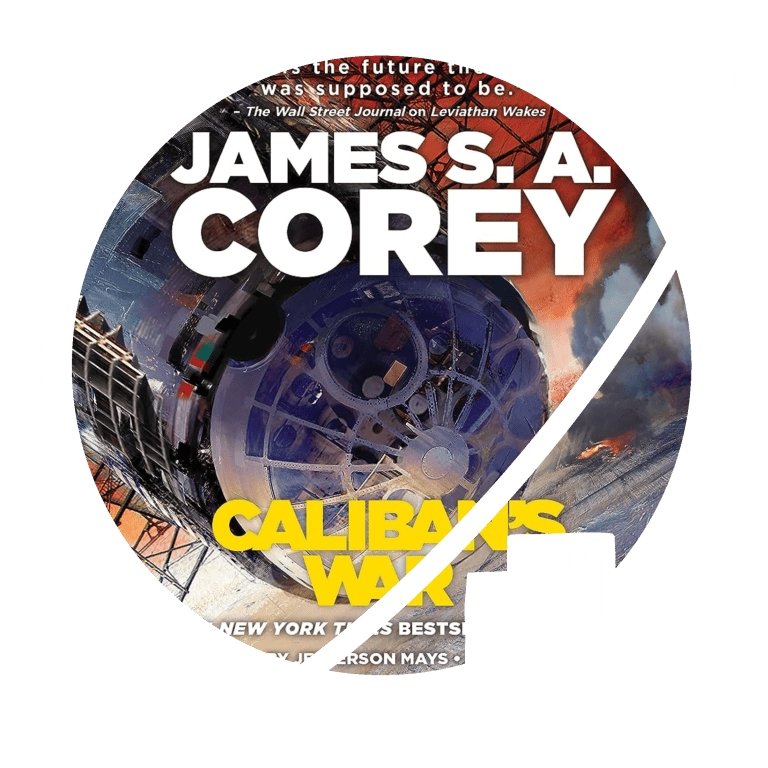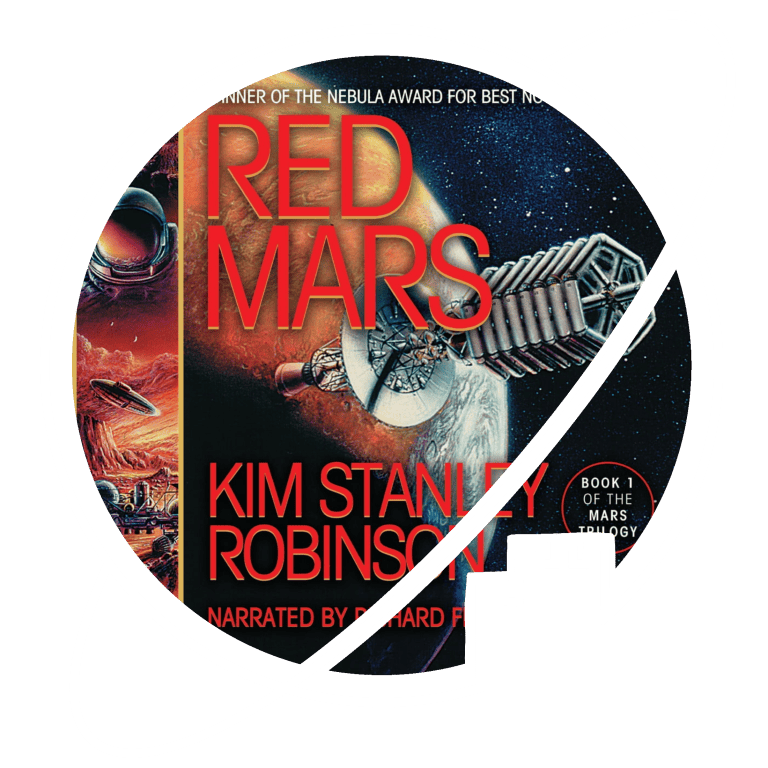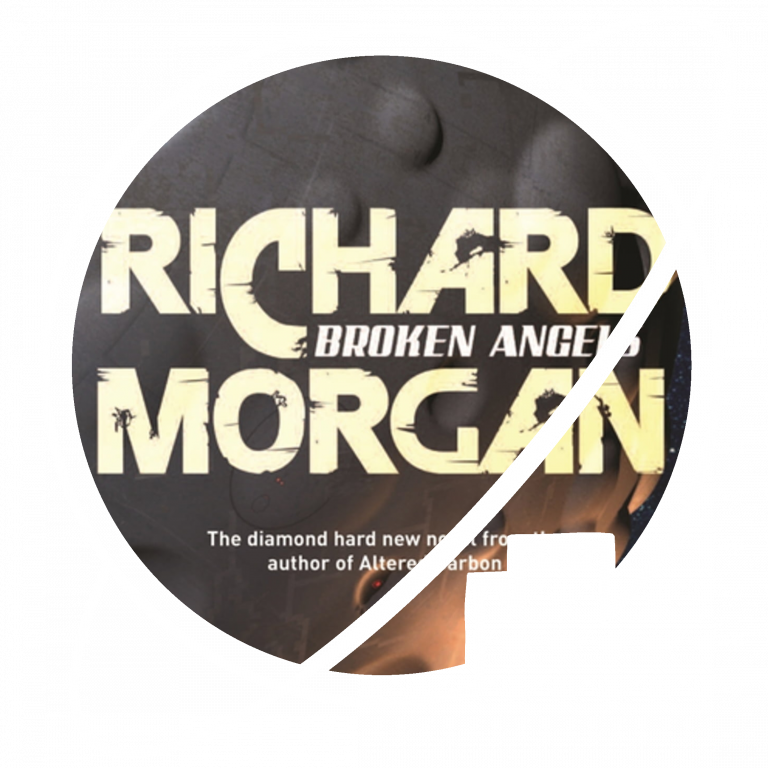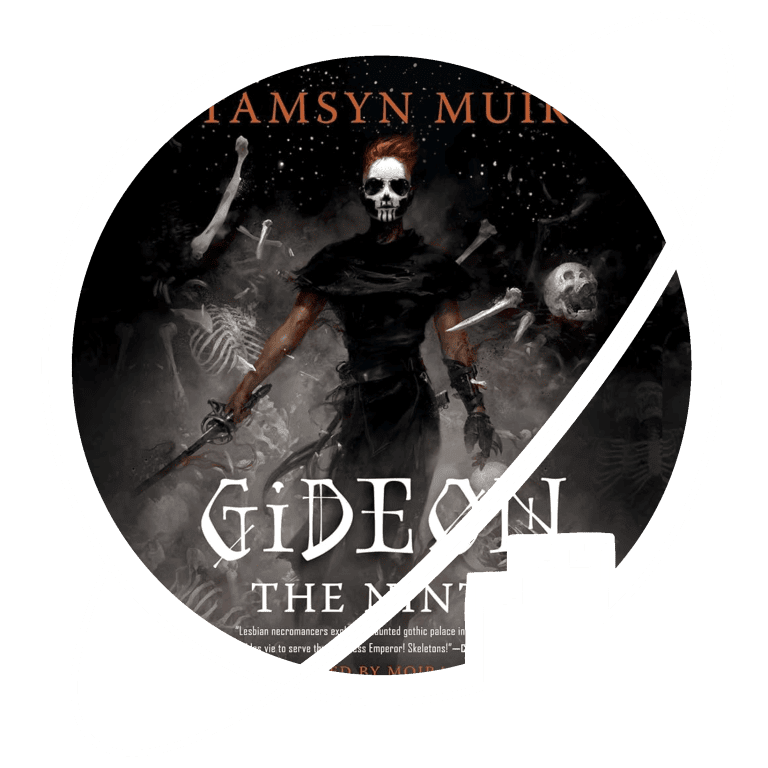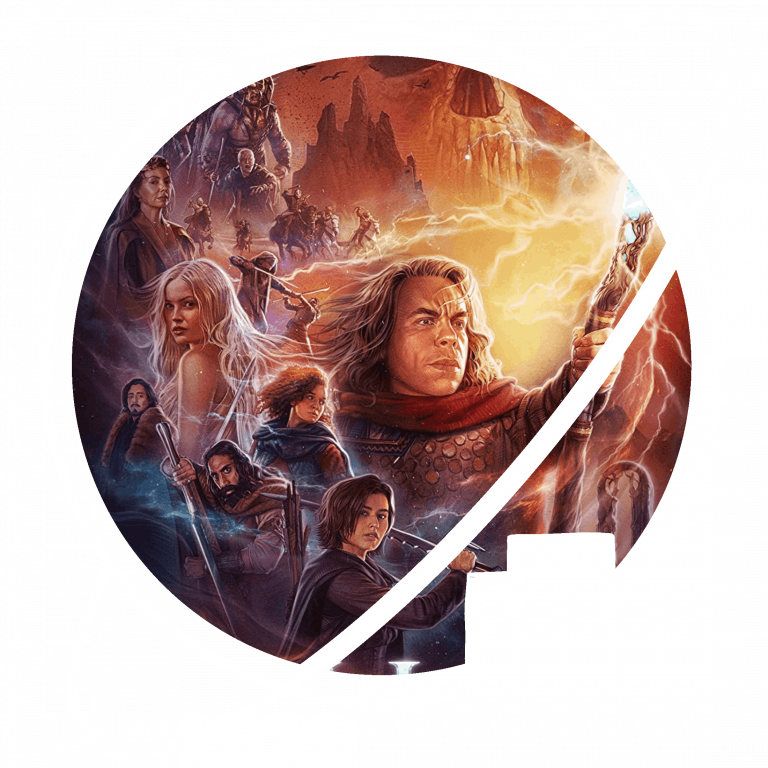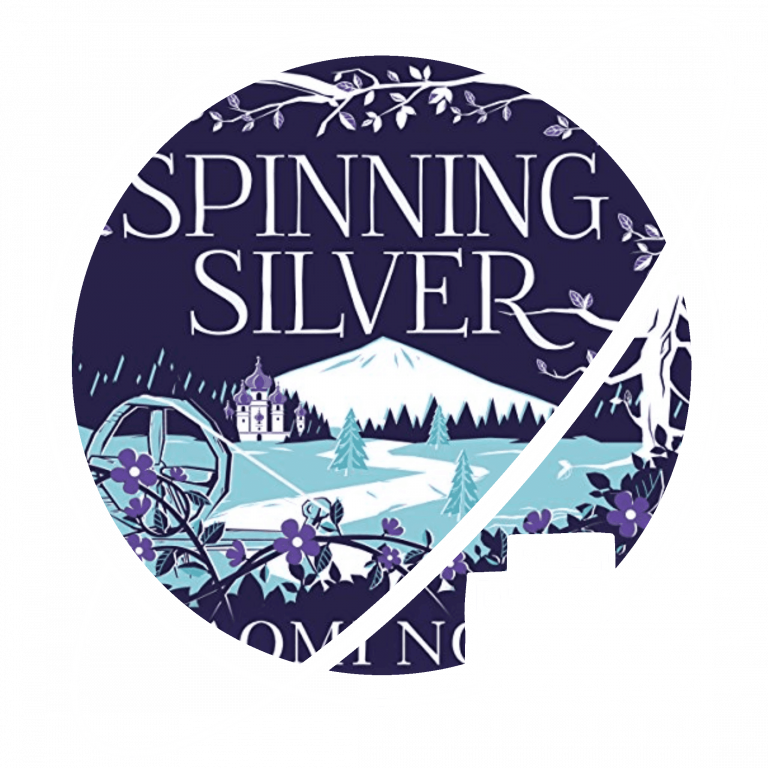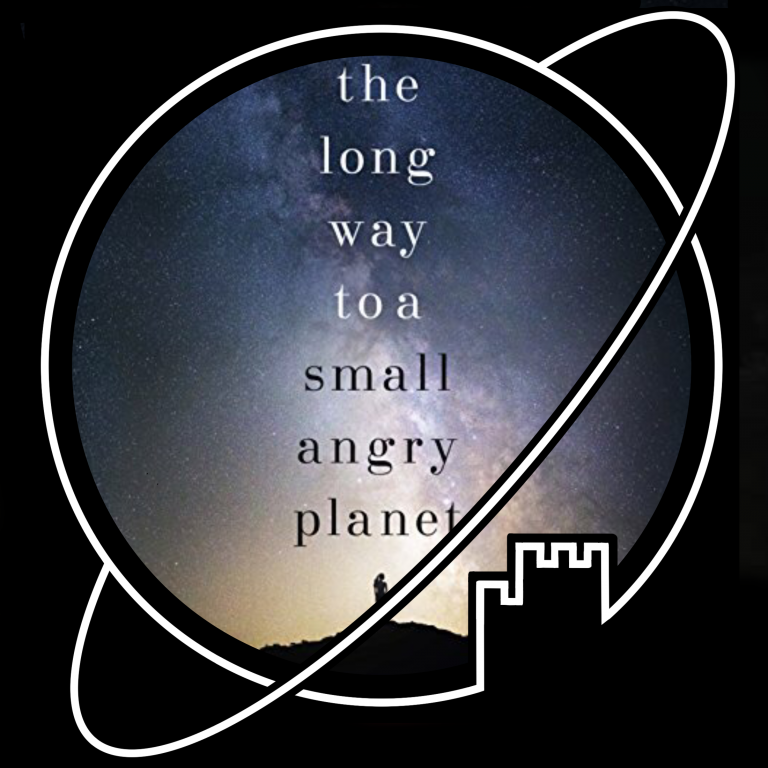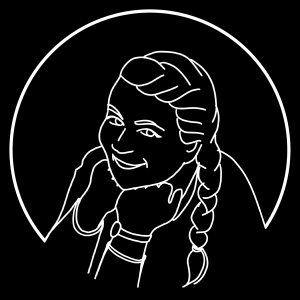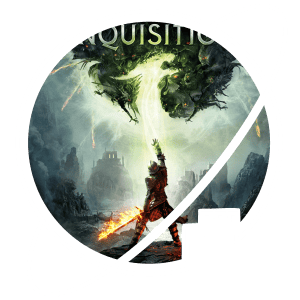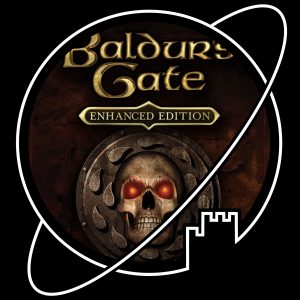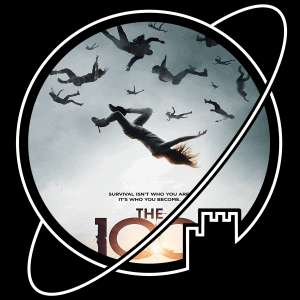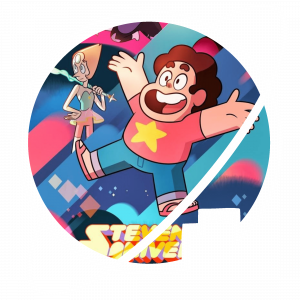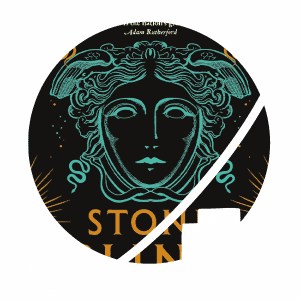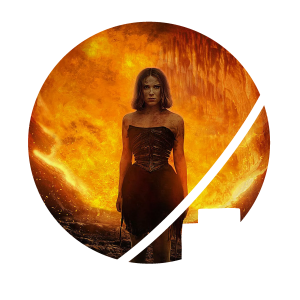A curated Collection of Fantasy and Science Fiction Media
Recent Updates
- Novel written by Christopher Paolini
- Published May 16, 2023
- Part 0.5 of the Fractalverse
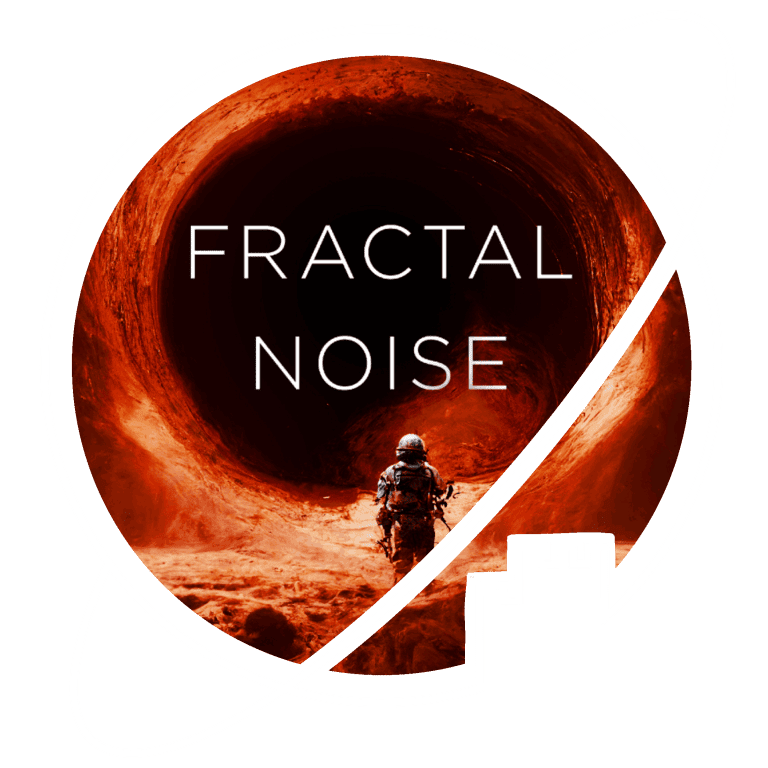

Christopher Paolini and I go back. Not very far, but far enough. I watched the Eragon movie when I was a kid, and quite enjoyed it because Dragons. About five years ago, I finally got around to reading the book, and was less than impressed. I gave it one star. Yeah.
I find it hard to hate on Eragon too much because Paolini wrote it when he was 15 years old. It’s impressive for a kid to write a whole book, even if it’s a bad one! I’m much less forgiving when it comes to his later work, however. His Sci-Fi novel To Sleep in a Sea of Stars had a lot of potential, which was wasted at every possible opportunity. It was just way too long, and even after 900 pages, it didn’t actually end. I won’t go too deep into my issues with the book, but if you’re interested in reading my rant – I mean analysis – feel free to check out my post about it.
Fractal Noise is a sort of prequel to Sea of Stars. None of the characters overlap, and we also don’t see any of the interesting concepts introduced in the latter novel in Fractal Noise. The ship Alex is on, the Adamura, also has a ship mind (a human whose brain has been implanted into a ship to control its processes like a sort of AI), but she barely plays a role in the plot.
One big similarity between the two books is that both main characters mourn a partner. Alex’s wife is dead and he’s understandably very upset about it. This was an improvement from Sea of Stars, in which protagonist Kira very quickly seemed to forget that her dead fiancé ever existed. The death of Alex’s wife, Layla, is a big theme in Fractal Noise. It’s essentially the main focus of the story, which is unfortunate because, based on the back cover, I thought I was about to be reading a thrilling first-contact Sci-Fi novel. Instead, this story is mostly about loss, which would be fine if it were a satisfying read, which it wasn’t.
A big problem for me were the characters. None of them are particularly interesting, and we don’t ever really dive deep into what drives them, other than “religion” for Talia, or “nothing” in the case of Alex. They’re not funny, they’re not compelling, and I couldn’t identify with any of them. The character we learn the most about is probably Layla, but even she never really becomes a “full” person.
The story itself also wasn’t really compelling enough to satisfy me as a reader. At the risk of spoiling the book a bit: nothing much happens. I kept waiting for the big moment that would make Fractal Noise worth my time, and it genuinely never comes. Much like To Sleep in a Sea of Stars, this book doesn’t really have an ending, and it’s very frustrating. When I finished the book, I almost threw it across the room because I was SO annoyed.
Before I leave you with the recommendation to just not pick this novel up, I do want to touch on one more topic. The cover of Fractal Noise uses stock art that was generated with AI. TOR is a publishing house that has plenty of money to pay actual artists to make their covers, and I hope they learnt from the backlash they faced over this issue. However, I don’t know if I agree with people who haven’t read the book leaving low-star reviews on Goodreads just because of the cover. That said, I think the book is kind of bad, so as far as I’m concerned the star rating is entirely fair.
Tagged:
See also:
- TV show developed by Craig Rosenberg, Evan Goldberg and Eric Kripke for Amazon Prime
- Released 29 September 2023
- Starring Jaz Sinclair, Chance Perdomo, Lizze Broadway, and others
- 1 Season of 8 Episodes, renewed for a second season
- Spin-off of The Boys
Set in the world of The Boys, Gen V follows the exploits of a group of students at Godolkin University, an institute exclusively dedicated to educating the US’ young superheroes (’supes’). Against the backdrop of increasingly violent politics and the innumerable crimes of superhero corporation Vought, young adult drama soon turns serious when it appears something shady is going on at GodU.

This review relates to the first season only
I was surprised I liked The Boys, so when I was in the Prime app and saw a spin-off had appeared, I figured I would give that a go too. Unfortunately, it didn’t really live up to my expectations.
A lot of Gen V is decent – it looks good, the acting isn’t bad, and I think a lot of the character writing is well done – I especially like Emma/Little Cricket’s character and arc. I guess the plot is on the ‘eh’ side of acceptable, with a predictable magic school-through line and the by now almost inevitable crosses and double crosses towards the end of the season. The setting – a world with a cynical take on superheroes and modern politics – is still strong.
However, where I felt The Boys got the message mostly right, Gen V misses the mark just a bit too often. The Boys, told from the perspective of ‘normal’ humans, shows us that supes in a position of privilege almost inevitably abuse their power. And while Gen V would have been the perfect opportunity to show us how good kids get corrupted by an inequitable system, we instead see that the real problem is revenge-bent, evil, manipulative individuals with megalomaniac plans.
Similarly, being told from the perspective of supes, Gen V mostly ignores non-supe characters, falling into exactly the trap that The Boys criticises, i.e. that normal people don’t matter to supes; here, they’re not made to matter to the viewer. It all fits the ‘standard’ progression of a superhero story, but doesn’t rhyme well with the societal criticism the series seems to want to deliver.
In short, Gen V was definitely watchable but also at times annoying or frustrating, and never particularly rewarding. If you’re planning on watching, I would recommend putting it on in the background while cooking or ironing or something suchlike – definitely not sit-down-to-watch television.
Tagged:
See also:
- Book written by James S.A. Corey
- Published 4 June 2013
- Part 3 of The Expanse
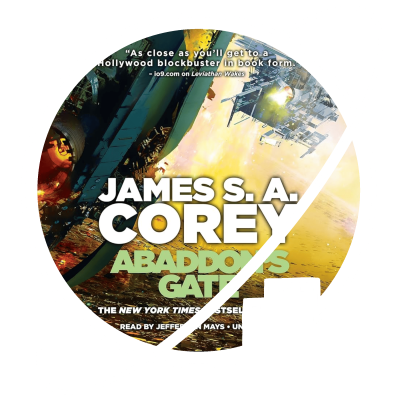

As The Expanse progresses, its sci-fi may soften but the tension never slackens. Abaddon’s Gate is similar in structure to the previous instalments, following the story from separate points of view that intertwine as the plot progresses. This creates the series’ signature high pace, skipping from highlight to highlight as experienced by each of the characters at breakneck pace and keeping the reader glued to the pages.
Abaddon’s Gate also follows the series trajectory in moving from more technical hard science fiction to the softer kind where certain story elements are taken for granted and not explained. This also allows Abaddon’s Gate to take The Expanse new and exciting places that a more grounded narrative such as Kim Stanley Robinson’s Mars-trilogy could not go.
This, I think, is one of The Expanse’s strengths: even as the core cast of characters remains constant, the backdrop of the development of their relationships shifts just a little every time, keeping the story fresh.
That changement de decor is also, however, taking The Expanse into more generic sci-fi territory. Whether this is a downside is up to you, but I found that it makes me less excited, not more excited to pick up the next book.
That is not to say that I won’t read it or expect to enjoy it – on the contrary. But I’m now reading The Expanse for the smooth prose, quick Hollywood-in-a-book-style action and to a lesser extent, the main characters.
In this particular case, there is something else as well: with the vast array of opportunities opened up at the end of Abaddon’s Gate, I’m very curious to see where Cibola Burn will take us. I already have a copy on my to read-shelf, so watch this space!
Tagged:
See also:
- Novel written by Tamsyn Muir
- Published August 4th, 2020
- Part two of the Locked Tomb series
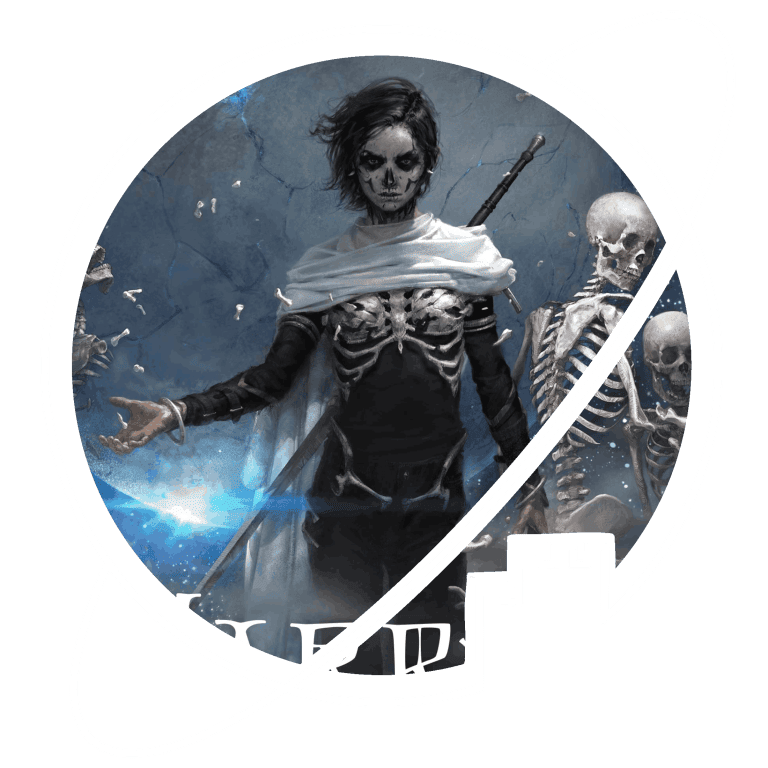

Last year, I listened to the audiobook of Gideon the Ninth by Tamsyn Muir. In my review, I stated that I wasn’t sure if the audiobook (though wonderfully narrated by Moira Quirk) had been the right choice for me, as Gideon the Ninth frequently left me extremely confused. I decided to buy the physical book of Harrow the Ninth for this very reason, and I’m glad I did. Being able to go back a couple of sentences whenever I didn’t understand what was going on was really helpful, because…
This book was still confusing, and not just because I couldn’t keep up with the audiobook (so I’m sure I would have struggled similarly with Gideon, had I read a physical copy of that). It’s the type of story where something has changed before the book starts (in this case, Harrow forgetting Gideon) and the reader is left to put together the puzzle as they read. I’m not great at puzzles, so this type of story structure usually doesn’t really work for me. And truly: it shouldn’t have worked. But there’s something about Muir’s writing that makes me happy to sit through pages and pages of confusion and enjoy it too.
Thankfully, there are fewer characters in Harrow the Ninth than in Gideon the Ninth. Unfortunately, I had just as difficult a time trying to keep them apart. This was partly because they all have like 3 names and if you put a gun to my head I wouldn’t be able to tell you who the saint of Duty was, or why the emperor gets referred to in 5 different ways. I had this problem in Gideon and it’s still kind of annoying and unnecessary, especially considering the relatively small cast of characters. It’s almost as if Muir is intentionally trying to confuse the reader. What doesn’t help is that Muir’s style is very snappy and quirky, sometimes at the expense of characterisation. Every character talks quite similarly, which makes them blur together.
Harrow the Ninth is written in part in second person, which – again – shouldn’t work but somehow it does. Like in Gideon, I really enjoyed the way this book was written. It’s extremely funny. Muir even sprinkles some memes throughout the book, which worked for me, but which I can imagine enraging other readers. I can imagine some people reacting very poorly to it.
Even after finishing it, I’m still not 100% sure I understood everything that happened in the story. Like, I just didn’t fully get it. But that’s okay! Despite there being a lot of aspects of this book that didn’t work for me, the overall charm of Muir’s setting and characters is so strong that Harrow the Ninth gets a solid four stars from me. I think these books would be particularly fun to reread after finishing the series, because I’m sure there’s so much that I missed on my first readthrough.
I even immediately went back to the store to find book three. Unfortunately, they only had an expensive hardcover, so back to the audiobooks I go!
Tagged:
See also:
- Book written by T. Kingfisher (pseudonym for Ursula Vernon)
- Published 26 April 2022
- Standalone
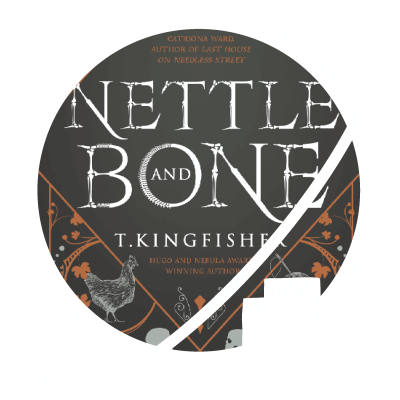

Listened to the audiobook with Amara Jasper. I think she does a really good job.
I haven’t read all Hugo award winners, and I know the Hugo is no guarantee for a book I’ll like. I would often prefer one of the other nominees over the eventual winner. But of the ones I did read, it feels like I’d have to go back to Larry Niven’s Ringworld in 1971 to get to a winner that surprised me this much. Not just because there are better books on the shortlist, but mostly because I just don’t get the appeal.
If I’d be a braver man, I might argue that Nettle & Bone feels like poor Naomi Novik-clone without any of the feeling, but I’m afraid I’ll offend someone who actually likes this book.
Yes, Nettle & Bone has some of the ‘in a kingdom far away there lived a princess’-fairy-tale-esque energy, but I keep feeling like if that is what you are looking for, you should go read Spinning Silver or Uprooted (wait, we haven’t reviewed that?) instead.
Yes, Nettle & Bone has some of that low-conflict cosy fantasy energy, but if that is what you are looking for, I would emphatically recommend the also-nominated-for-the-same-Hugo Legends & Lattes over Nettle & Bone (and if you don’t mind sci-fi, Floating Hotel or even The Long Way Round to a Small Angry Planet does it a lot better).
So what is the problem?
Nettle & Bone has a main character that is potentially interesting, a third daughter of the king of a small kingdom caught between two larger empires, who is sent to a convent, both for safe keeping and to make sure she doesn’t play a role in politics. That seems like a pretty good premise, but unfortunately, the main character never realises that potential. She is kind of mellow. Her main trait appears to be perseverance (I think?), but that just doesn’t play a role in the story (which is also because… well, there is never a challenge).
There is a cast of quirky side characters that are occasionally cute or funny. But they seem just a little too quirky. They’re often in the the eyeroll territory, occasionally bordering on cringey. It doesn’t help that there is a complete absence of conflict in this book. It’s not that I don’t buy their relationships, but the relationships are just immediately cosy. This also means that there is very little development, either of characters or of relationships. The result is a lot of bloodless, frictionless ‘and then this happened and then this happened’-style storytelling.
This seemingly forced simplicity also results in an almost compulsive absence of worldbuilding. That’s maybe a rough bit of criticism, and I get it probably says more about my expectations and tastes than it does about Nettle & Bone. But combined with the underdeveloped main character and the cute-but-flat side characters, the lack of worldbuilding meant that I felt Nettle & Bone was just a bit boring.
Aggressively inoffensive, Nettle & Bone just never managed to excite me. Everything in this book is simple and mellow. There are occasionally good scenes, but overall, I’d much rather read something with actual tension.
Tagged:
See also:
Time to get to know the Escape Velocity Collection’s curators! How? By asking them the questions that really matter! Let’s see what our curators have to say…
Today’s question is:
Which fantasy/sci-fi character would you like to go on a date with?
Damn. I came up with this question myself and I have no idea.
I tend not to fall in love with characters I read/watch/play, maybe I enjoy media from a bit more distance than most of the other curators on this site… I could name some characters from television played by good-looking actresses, but that would feel like cheating. Besides, a date implies a relationship, so I ought to look deeper anyway.
I’ve recently re-read the Saga of Pliocene Exile and I find that I like the female characters that Julian May writes – I wouldn’t mind going for tea and carrot cake with Elizabeth or Mercy (though given their backgrounds, neither is relationship material). I’ve alway thought Imoen’s voice from Baldur’s Gate sounded really cute, so if that’s a thing to go by we could go for a nice hike sometime. I remember I really liked Dr. Rose Franklin from the Themis Files – she seems really smart and caring. Maybe we could go visit a museum together. She’s probably my top-1 candidate for a second date!
Oh man this is both such a difficult but also easy question. There’s a lot of Bioware video game characters I would happily marry on the spot. I love video games that allow you to romance characters, because the romances are often the funniest part of a game, and the good people of Bioware know what I like. Still, if we’re just talking about one date…
I’d probably have to say Kassandra from Assassins’ Creed Odyssey. Look, she’s hot. There’s just no way around it. During this game, I was constantly distracted because of Kassandra’s voice acting. I want her to crush me like a grape. Or feed me grapes. Or we could just go on a date.
Oh, my… I’ll admit that I share Lotte’s sentiment when it comes to Bioware’s romances & characters. Dragon Age 2’s Merrill stole my heart the moment she babbled her way through our first conversation. Along the same lines, I’ll never forget my romantic journey with Dragon Age: Inquisition’s Josephine Montilyet; the despair when she told me she had to marry another, and the poorly thought-out duel I fought to win her hand back.
A date, however… Bioware characters aside, I would like to see how a date with The 100’s Lexa would turn out. Intelligent, beautiful and fierce as she is, yet with a hidden softer side. However the date would turn out, I suspect it wouldn’t get boring. Kettricken from Robin Hobb’s The Realm of the Elderlings is also a serious candidate. I would love getting to know her better.
I had just started going through a list of possible options when I realised the answer was obvious: of course I would want to go on a date with Lee Scoresby (from His Dark Materials). He’s charming and funny, adventurous, and also just generally a really good guy. What’s not to like? Plus, I figure the date would include a trip in his air balloon, so count me in!
I think I’d fall for Tauriel from The Hobbit movies. She follows her heart and believes in a better world, despite what others try to teach her. Furthermore, she is capable and persistent, traits I can always appreciate in a potential love interest. Also, Evangeline Lilly is not unpleasant to look at…
That’s it: another soul-searching question answered!
Still curious? Visit each curator’s page to see what they’ve recently been up to!
Check out our reviews of the media discussed in this post here:
© 2023 – Escape Velocity – A Curated Collection of Fantasy and Science Fiction Media
Privacy Overview
| Cookie | Duration | Description |
|---|---|---|
| cookielawinfo-checkbox-analytics | 11 months | This cookie is set by GDPR Cookie Consent plugin. The cookie is used to store the user consent for the cookies in the category "Analytics". |
| cookielawinfo-checkbox-functional | 11 months | The cookie is set by GDPR cookie consent to record the user consent for the cookies in the category "Functional". |
| cookielawinfo-checkbox-necessary | 11 months | This cookie is set by GDPR Cookie Consent plugin. The cookies is used to store the user consent for the cookies in the category "Necessary". |
| cookielawinfo-checkbox-others | 11 months | This cookie is set by GDPR Cookie Consent plugin. The cookie is used to store the user consent for the cookies in the category "Other. |
| cookielawinfo-checkbox-performance | 11 months | This cookie is set by GDPR Cookie Consent plugin. The cookie is used to store the user consent for the cookies in the category "Performance". |
| viewed_cookie_policy | 11 months | The cookie is set by the GDPR Cookie Consent plugin and is used to store whether or not user has consented to the use of cookies. It does not store any personal data. |






